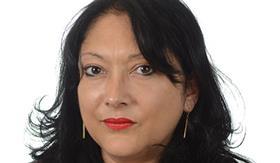The time has come for property folk to decide if they are professionals… or the wide boys and girls they are so often portrayed as outside the industry.

Over the past decade, there has been a marked shift in how industry players prefer to be identified, just as there has with lawyers and investment bankers.
The difference is that in the latter two professions, this reflects actual change internally - albeit forced in both cases (by client demands and the financial collapse respectively). The suspicion remains that while property may have donned the sheep’s clothing of professionalism, the wolf still lurks within.
Two events this week should give cause for optimism that the industry is poised for positive change.
First was the launch by the Investment Property Forum (IPF) of a new code governing how agents should behave when it comes to real estate investment (see page 12). The IPF is demanding an end in all but exceptional circumstances to the egregious practice of agents acting on both sides of an investment deal - aka double dipping.
About time too. No matter how robust Chinese Walls are, whether you are a humble estate agent selling a semi while also showing potential buyers around, or a City of London investment agent involved on both sides of a multi-billion pound portfolio acquisition, the mere appearance of a possible conflict is enough to lead outsiders to question the ethics of our industry… and rightly so.
The code is not mandatory, so there will be those who question whether it will have teeth. Some will also ask whether it goes far enough. However, it has been enough to convince Nick Leslau, who railed vociferously against double dipping in these pages eight months ago and called for a zero-tolerance approach, but has now welcomed the code despite the fact it is voluntary and does not completely ban the practice.
I am inclined to agree that while in an ideal world, there would be no wiggle room, the code is a good start especially if other agents follow the lead of CBRE, Cushman & Wakefield, JLL, Savills, Knight Frank and Colliers among others in signing up.
To be considered truly professional, externally as well as internally, the industry will need to follow the code to the letter. Then, perhaps it could be considered a more trustworthy profession and a more worthy choice for those starting out in their professional lives - rather than a career people only enter if they can’t get into sexier professions such as law or finance.
At a VIP panel discussion for Property Week’s Open Plan campaign this week, it was telling that when the audience was asked how they had got into property, the majority answered either through the recommendation of friends and family or because they had simply fallen into it.
Hardly a ringing endorsement of property’s pulling power, is it? Or a great way to improve diversity? Progress is being made, of course. It was heartening to hear of the initiatives to encourage women back to work after having families and of the mid-career support now on offer. When it comes to encouraging young people from a wider range of socio-economic and academic backgrounds into the industry, the picture was far more mixed, however, with an understandable resistance to introducing quotas in danger of stalling necessary change at best and maintaining the status quo at worst.
As you will see when you read our white paper revealing just how diverse - or not - our industry is, there is still a very long way to go.






























No comments yet